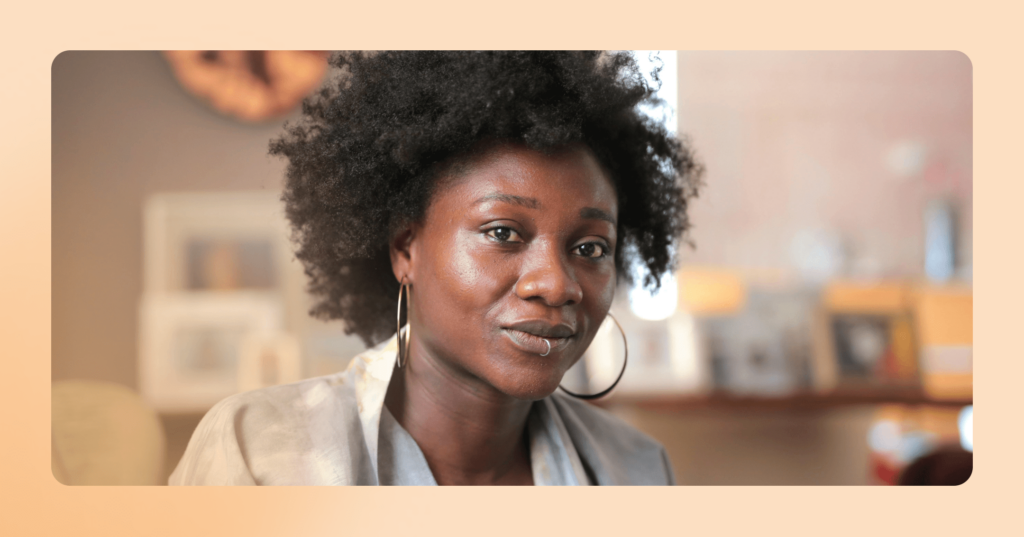Having a distorted self-image means not having an accurate perception of yourself. This can have a negative effect on your mental health and self-esteem.
People with a distorted self-image may have a negative body image. When they look in the mirror, they don’t see what everyone else sees.
Sometimes, a distorted self-image could indicate the presence of an underlying mental health condition, like anxiety, body dysmorphic disorder, eating disorders, or other related conditions. So if your self-image is negatively affecting your quality of life, don’t hesitate to ask for help.
Most people know what it feels like to look in the mirror and not like what they see. We all have days when we don’t feel as smart, captivating, or capable as we’d like to be. Despite all evidence to the contrary, it can be hard to acknowledge and appreciate the good things about ourselves.
Having a temporary episode of distorted self-image isn’t necessarily cause for concern. But, in some instances, a distorted self-image is linked to mental health concerns like body dissatisfaction. This experience is highly prevalent among people living with conditions like depression, anxiety, body dysmorphic disorder and eating disorders. So, while anyone can experience a distorted self-image, people with certain mental health conditions might be at greater risk.
What is a distorted self-image?
Self-image is the view a person holds about themselves at any given moment. A distorted self-image occurs when a person perceives themselves inaccurately. Or, in other words, distorted self-image causes an inability to see what’s true about ourselves. This can affect how we view both internal and external parts of our identities.
Self-esteem is a concept that’s tied to self-image, but they aren’t exactly the same thing. Self-image is how we see ourselves, but self-esteem is our opinion of that perception. Having healthy self-esteem means we can view ourselves in a positive light amid life’s ups and downs.
Insecurity is another concept related to self-image and self-esteem. Insecurity can creep up in the absence of healthy self-esteem. It’s a feeling of unworthiness or not being good enough. Insecurity can cause you to compare yourself to other people and worry that you won’t be liked or accepted. Unhealthy self-esteem and insecurity may be more likely to occur when a person is unable to perceive themselves accurately.
A distorted sense of self: Inner and outer perceptions
When a person has a distorted body image, they don’t see their body as it appears to everyone else. This experience is also referred to as having a distorted outer perception or a negative body image. Sometimes, this can lead to disordered eating, overexercising, or other unhealthy behaviors in an attempt to achieve an unrealistic, idealized appearance.
In addition to distorted outer perceptions, people can have distorted inner perceptions. When this happens, they may not be able to recognize their positive qualities or talents. Despite evidence of their accomplishments or achievements, they might still see themselves as inadequate or unworthy. When they’re severe and chronic, both distorted inner and outer perceptions can signal an underlying mental health concern.
The care you need, when you need it
Learn how Rula can support your mental health journey
Effects of living with an unstable self-image
Left untreated, an unstable self-image can negatively affect your well-being in many ways. It can impact your ability to function in daily life and lead to:
Increased reactivity
Emotional instability
Relationship difficulties
Reduced self-acceptance
In addition, an unstable or distorted self-image has also been linked to mental health conditions, including:
Narcissistic personality disorder (NPD)
Body dysmorphic disorder (BDD)
It’s important to remember that having occasional negative thoughts about yourself or your body doesn’t necessarily mean you have a mental health condition. But if these thoughts are frequent or start affecting your well-being, it might be time to consider seeking professional help. A therapist can provide an accurate diagnosis and help you get the support you need.
How to build a healthy self-image
Having a healthy self-image doesn’t mean ignoring your flaws or thinking you’re perfect. It just means that you can honor and accept yourself and your body, even if you have qualities you’d like to change.
Building a healthy self-image is a gradual process, and it’s important to remember that it’s normal to have ups and downs along the way. But you can start by:
Taking it slow: Instead of trying to overhaul how you feel about yourself all at once, take things one step at a time. For example, try to acknowledge one positive thing about yourself each day.
Keeping it simple: You don’t have to solve all the world’s major problems to be worthy of a healthy self-image. Pay attention to the small but meaningful ways you make a positive difference for yourself and others.
Giving it time: Make regular time to appreciate yourself, even if it’s just for two minutes. You can even put it on your calendar as a reminder.
Quieting your inner critic: Don’t be afraid to stand up to the negative voice in your mind. See if you can replace critical thoughts with more supportive ones.
Avoiding comparison: Try to avoid comparing yourself to others — especially people you see online. Remember, social media is usually just the highlight reel and doesn’t tell the full (and flawed) story of a person’s life.
Finding support: Steer clear of people who tend to criticize or insult you. Instead, spend time with people who make you feel like the best version of yourself.
Professional support in your self-discovery journey
If a distorted self-image is taking a toll on your well-being, know that you’re not alone and help is available. In some situations — especially when there’s an underlying mental health condition — one of the best things you can do to support yourself is seek professional help. By working with a therapist, you can uncover the root causes of your distorted self-image, challenge unhelpful narratives, and take steps toward repairing your self-esteem.
During therapy, I encourage clients with distorted self-image to watch for early indicators of improvement like being kinder to themselves, thinking less negatively, and noticing their strengths. They may also notice improvements in their relationships and feel more balanced about their body or abilities.

Brandy Chalmers, LPC
Clinical reviewer
Find care with Rula
We all have days when we feel unattractive, incapable, or unworthy, and it can be hard to silence our inner critics. But if a distorted self-image is negatively affecting your well-being or ability to function, don’t hesitate to ask for help. You could be living with an underlying mental health condition that may benefit from professional help.
Fortunately, with Rula, the support you deserve is just a few clicks away. Whether you’re facing a distorted self-image or another issue, you can sift through our network of over 15,000 providers to find the right therapist for your needs. To get started, head over to our therapist-matching program. You can sift through your options, select a provider who takes your insurance, and start receiving the mental healthcare you deserve as soon as tomorrow.
Rula's editorial process
Rula's editorial team is on a mission to make science-backed mental health insights accessible and practical for every person seeking to better understand or improve mental wellness.
Members of Rula’s clinical leadership team and other expert providers contribute to all published content, offering guidance on themes and insights based on their firsthand experience in the field. Every piece of content is thoroughly reviewed by a clinician before publishing.




